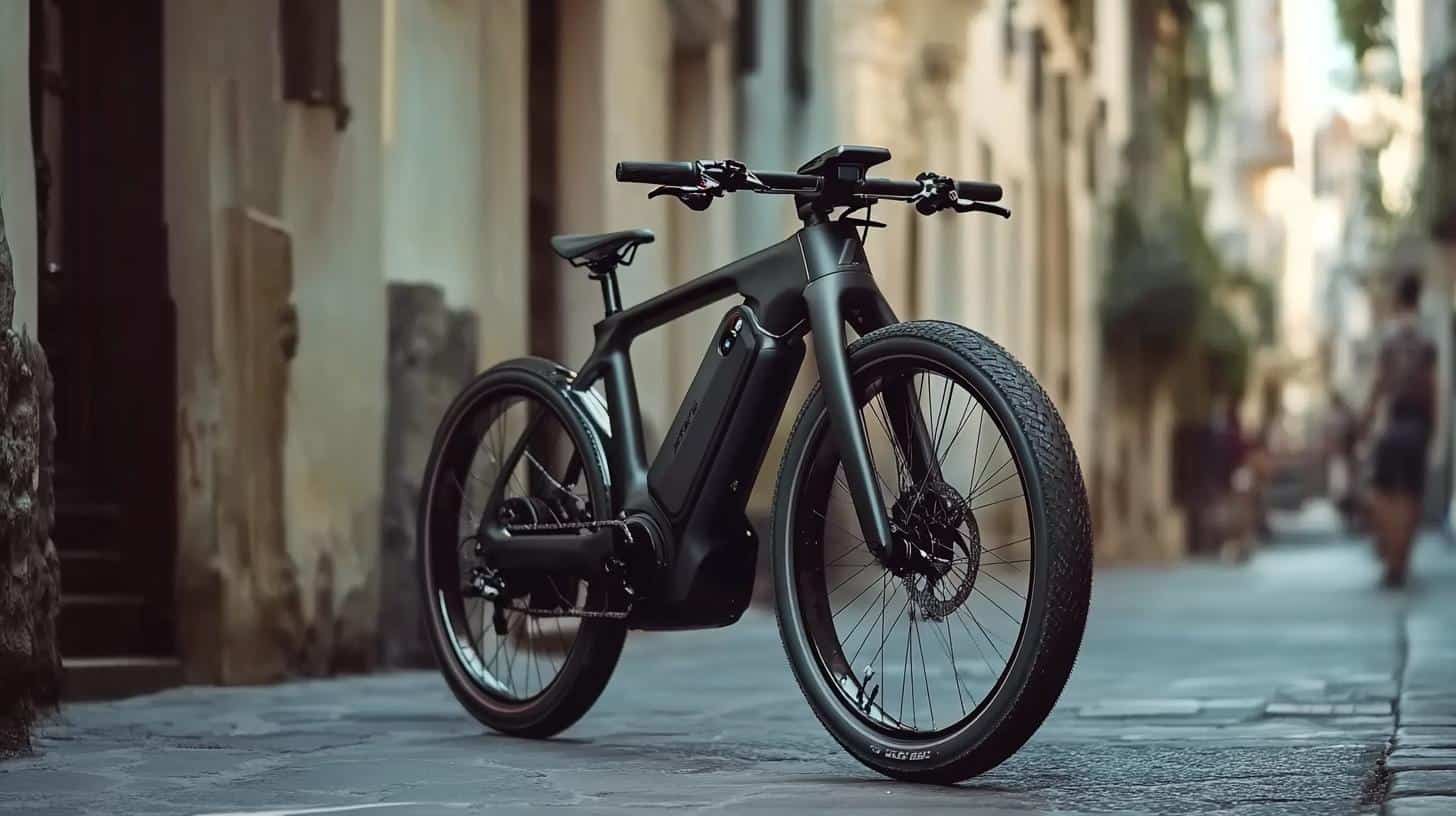In a move that’s set to excite urban commuters, Trek has unveiled its latest high-end electric city bike, the FX+ 7. Known for their premium offerings, Trek continues to deliver sophisticated bicycles at a price that reflects their quality.
Designed for Urban Adventures
The FX+ 7 is crafted to meet the demands of daily city commuting, offering impressive support for uphill rides while maintaining a lightweight build. Weighing just 18 kg due to its carbon fork, this bike is easy to carry up and down stairs, making it perfect for city dwellers and those living in apartment buildings. Though built for urban use, it’s also ready for occasional trails through the forest.
Performance Meets Convenience
The bike is equipped with a robust TQ HPR50 motor, providing a torque of 50 Nm, ensuring smooth navigation through bustling streets. Its internal 360Wh battery delivers substantial range for both weekday commuting and weekend market trips. Additionally, a 160Wh range extender is available for those yearning to explore beyond the concrete jungle.
A built-in Quad Lock mount on the stem allows riders to secure and charge their smartphones easily, ensuring connectivity to the Trek Central app. This app is designed to personalize the rider’s experience, providing customizable assistance levels, navigation, and range estimates.
Priced at 4,559 euros, the FX+ 7 is positioned as a premium option, targeting those who value reliability and cutting-edge technology. While more affordable alternatives exist, for those who can afford it, the FX+ 7 represents a compelling investment in a top-tier urban electric bicycle.
Electric Bikes: A Game-Changer or Gimmick? Unpacking Trek’s FX+ 7 and Beyond
The advent of electric bicycles has certainly revolutionized urban commuting, but what does this mean for communities and nations as a whole? With Trek’s newly released FX+ 7 setting the standard for high-end electric city bikes, there’s more to explore beyond its premium craftsmanship. Let’s dive into the untapped details of how such innovations are reshaping our world, the contentious debates surrounding their rise, and the impact they bear on urban life.
Societal Impact and Sustainability
Electric bikes, including the FX+ 7, are increasingly being viewed as viable solutions to urban congestion and pollution. With cities like Amsterdam and Copenhagen setting the pace for a cycling-first future, other metropolises are taking note. Electric bikes have the potential to significantly reduce the carbon footprint of urban commuting, contributing to various cities’ goals of lowering emissions.
But what about those without access to premium bikes like the FX+ 7? Affordability remains a pressing issue. As cities invest in better cycling infrastructure, ensuring equitable access to biking options is crucial. Subsidies or community bike-sharing programs could bridge this gap, enabling wider adoption.
Advantages and Disadvantages
Advantages:
1. Reduced Commute Time: Electric bikes can cut travel times significantly, offering speeds up to 25 km/h, which is often faster than cars in congested urban areas.
2. Health Benefits: While they assist with pedaling, riders still engage in physical activity, promoting cardiovascular health.
3. Economic Savings: Beyond the purchase price, electric bikes are cost-effective, with lower maintenance costs and no fuel expenses.
Disadvantages:
1. High Initial Cost: Premium models like the FX+ 7 come with a hefty price tag, posing a financial barrier for many.
2. Theft Risk: Urban areas report high theft rates for bikes, deterring potential riders unless adequate security measures are in place.
3. Infrastructure Challenges: Without dedicated bike lanes or safe parking areas, the uptake of electric bikes may be stifled.
Questions and Answers
Are electric bikes truly environment-friendly?
Yes, electric bikes produce zero emissions directly. However, manufacturing and battery disposal impact the environment, albeit less than cars. Investing in greener production methods and better battery recycling can enhance their sustainability.
How do electric bikes affect traffic congestion?
They can significantly ease congestion. As more people opt for bikes over cars, city roads can become less crowded, potentially improving air quality and reducing travel times.
What’s the future of electric biking?
The future looks promising, with advancements in battery technology extending range and decreasing weight. More affordable models and supportive policies will likely increase their popularity. A move towards electric biking could revolutionize urban transportation, making cities more livable.
Electric bikes are more than a trend—they have the potential to reshape how we navigate and perceive urban environments. By considering both the opportunities and challenges, communities and policymakers can harness the true potential of this burgeoning mode of transportation. To continue exploring this topic, readers might visit Trek Bikes for more insights.






















